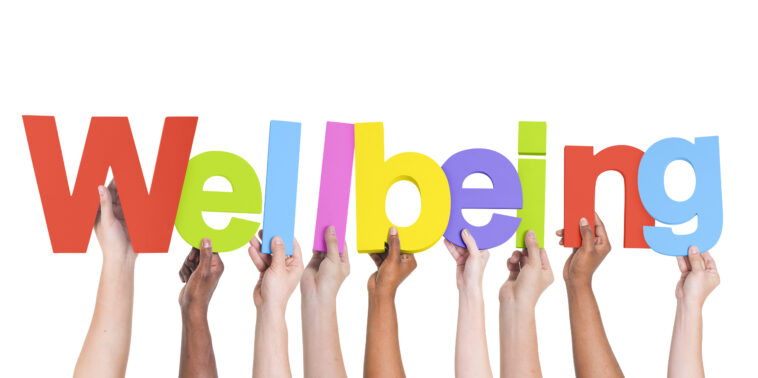Across the world, everyone experienced the impact of coronavirus differently. For some, the struggle of the lockdown their country put in place motivated them to work on themselves and reflect on how they can improve themselves going forward. Others, their country’s lockdown allowed them to test out new hobbies. For many, the pandemic had a significant impact on their mental health, causing them to feel worried and uncertain about the effect COVID-19 was having on their daily lives.
Due to the lockdown, many were forced to stay indoors, changing their dining table to their office desk. With limited things to do, and not being able to socialize with family or friends, this new way of living affects the wellbeing of many across the world.
With an increasing number of people being vaccinated, case numbers dropping and restrictions being eased, many of us are still struggling with our mental wellbeing. One of the ways to help with improving our mental health is to understand the impact the pandemic has had on our wellbeing, then look for ways to help us improve.
The Effects On Our Wellbeing

For those who were suffering from mental health issues, some of the coping mechanisms people used included socializing with friends, going to the gym, playing team sports or partaking in other forms of exercise. When lockdown restrictions were put into place, most of these coping mechanisms that many people relied on were unavailable. Team sports could no longer be played, gyms and other fitness facilities closed, and socializing with other households were prohibited. Whilst some turned to home exercises or weekly video calls with friends, others struggled with this new way of living.
Since health services were already stretched, the pandemic only worsened the situation, meaning many struggled with being able to reach support. The effects the pandemic had on the mental wellbeing of individuals included:
- Increased Stress Levels – Having been isolated for such an extended period, the stress and anxiety levels of many individuals increased rapidly. Whether it was due to the fear of contracting the virus, trying to be productive whilst working from home, or having to try and work whilst look after younger family members, the situation certainly tested how we cope with such an unprecedented situation. As stress levels began to rise, the effects it caused to our wellbeing included not being able to sleep, worsening mental and chronic health problems, causing unsettling feelings of fear, worry, sadness, and frustration of not having any control over the situation.
- Impacted Overall Happiness – Being away from loved ones and not being able to see them certainly took its toll on many people. As such, it caused great unhappiness not knowing when it would be possible to return to normal and spend time with those we love. For some, before the pandemic, they were already struggling with their happiness. The impact of the pandemic contributed to their overall unhappiness. For instance, this article offers insight into unhappiness and some of the factors that can lead to us being unhappy. It also guides how to help combat the feeling of unhappiness, which you can use to help you improve your wellbeing. For more info about this topic be sure to check edlatimore.com.
- Decline In Both Mental And Physical Health – With fitness facilities such as gyms and swimming pools being closed and team sports not being able to continue, many lost their form of exercise. Whilst many turned to home workouts, going on runs, walks or cycling, others saw a decline in their physical health and also their mental health. As mentioned, exercise was a coping mechanism some used to help with their mental health, the
- physical benefits were just a bonus. Having no access to fitness facilities meant that many struggled with trying to improve their wellbeing.
How To Improve Your Mental Wellbeing

When it comes to improving your mental wellbeing, there is no ‘one size fits all approach. Everyone and their mental health are different, so what might work for someone, may not work for someone else.
Here are just a few things that can help improve mental wellbeing that you can try or mix and match to see which one works best for you.
- Take Care Of Your Body – From taking the time to stretch and meditate, to eating a balanced diet, even exercising regularly and getting plenty of sleep can help to make a significant improvement in your wellbeing. It might take time to get into the habit of exercising more regularly or eating a balanced diet, however attempting to implement at least one of these changes is the first step.
- Put The Phone Down – “Doomscrolling” is a popular term used to describe the habit many of us developed last year. Spending a considerable amount of time scrolling online to reading all of the latest updates and figures around COVID-19. In addition to this, many of us would also regularly check the news channels to see what else was being said about the unprecedented time we found ourselves in. Whilst restrictions are being eased, many of us still find ourselves glued to our devices looking at updates from friends and those we follow going out and enjoying their time outdoors. In doing so, it causes us to feel as though we are wasting our time not enjoying this new freedom we find ourselves with. One of the best ways to help combat this issue is by taking some time away from your phone. Take the time to focus on yourself and pick up a hobby that helps you to relax and shift your attention so you are not thinking about what others are doing. Everyone goes through life, and how they deal with lockdown restrictions being lifted differently. If you are not ready just yet, do not worry, take your time.
- Reach Out To Loved Ones – Expressing your concerns or talking about how you are feeling with those that you trust can be incredibly helpful. They can offer you support, guidance and reassurance that they are there to help you in whatever way they can. Aside from being a great support network, you may be surprised to find that you are not only in the way you are feeling. Knowing that you are not alone means that you can support one another as you work towards improving your mental wellbeing, sharing advice and tips that you have found useful.
Take Your Time And Go At Your Own Pace

It is very easy to feel deflated about your progress when you look at photos of other people living their best lives on social media. However, it is important to understand that everyone is different and going at their own pace that suits them.
Try to avoid being swept up in the rush to be ready for all restrictions to be lifted, instead focus on yourself. Ensure that you and your mental well-being are in a stronger place than it was in the previous year. Putting your mental health first will help you to thoroughly enjoy life when you are ready to continue with activities that do not cause severe anxiety at the thought. However, if you are struggling with the idea of returning to normal, seek support from friends, family or professionals, and read up on tips on dealing with fear and anxiety as lockdown eases.




